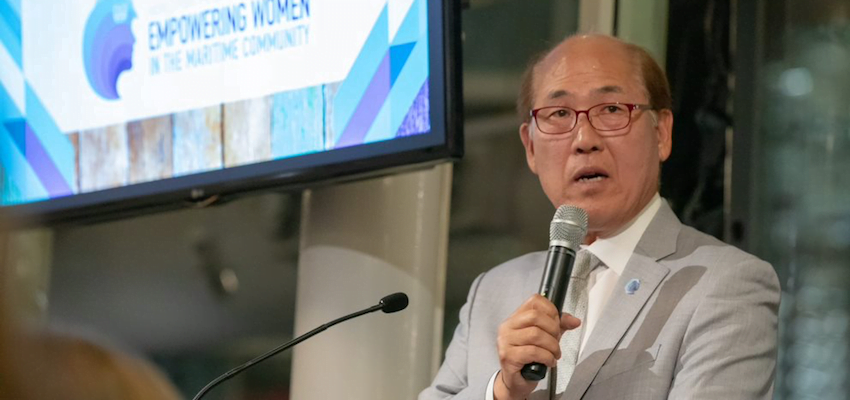IT WAS the first time that a secretary-general of the International Maritime Organization had visited Australia. Kitack Lim was in Sydney on 29 July at the invitation of the Australian Maritime Safety Authority.
“It is a great pleasure for me to be here in the beautiful harbour city, Sydney,” Mr Lim said.
While he believes the shipping industry has “much to be proud about” and is now “safer and more secure than ever before”, Mr Lim said the industry was focused on helping the United Nations achieve its 2030 agenda for sustainable development and the 17 Sustainable Development Goals.
“The 2030 agenda… will only be realised with a sustainable transport sector including shipping,” Mr Lim said.
“I am very pleased that the IMO theme this year is… empowering women in the maritime community,” he said, adding that this aligns with Sustainable Development Goal 5: Gender Equality.
According to the UN, “gender equality is not only a fundamental human right, but a necessary foundation for a peaceful, prosperous and sustainable world”.
“To celebrate the IMO theme we are undertaking a range of initiatives such as… a social media campaign,” Mr Lim said.
He spoke about the IMO’s impending 2020 fuel sulphur regulation, which will see a limit on the sulphur content of bunker fuel lowered to a maximum of 0.5% from 1 January, 2020.
“I have worked hard with members states and industry to support the implementation of this important global initiative which will have a far-reaching beneficial impact on the human race,” Mr Lim said.
Also at the AMSA event, speakers included Teresa Lloyd from Maritime Industry Australia Limited, Alison Cusack, lawyer and WISTA Australia president and Jeanine Drummond, harbour master with Newcastle and Yamba Ports.
In Australia, 5% of our seafaring workforce is female according to research by MIAL – that’s up from 3% in 2010.
“But the maritime industry is much greater than just those that go to sea and this room is a testament to that,” Ms Lloyd told attendees.
“The maritime community is absolutely alive and well with women.”
However, she said that it isn’t necessarily getting any easy for women to enter the industry today and there needs to be more even representation in technical as well as other roles.
“The pace of change is perhaps not where we want it to be,” she said.

